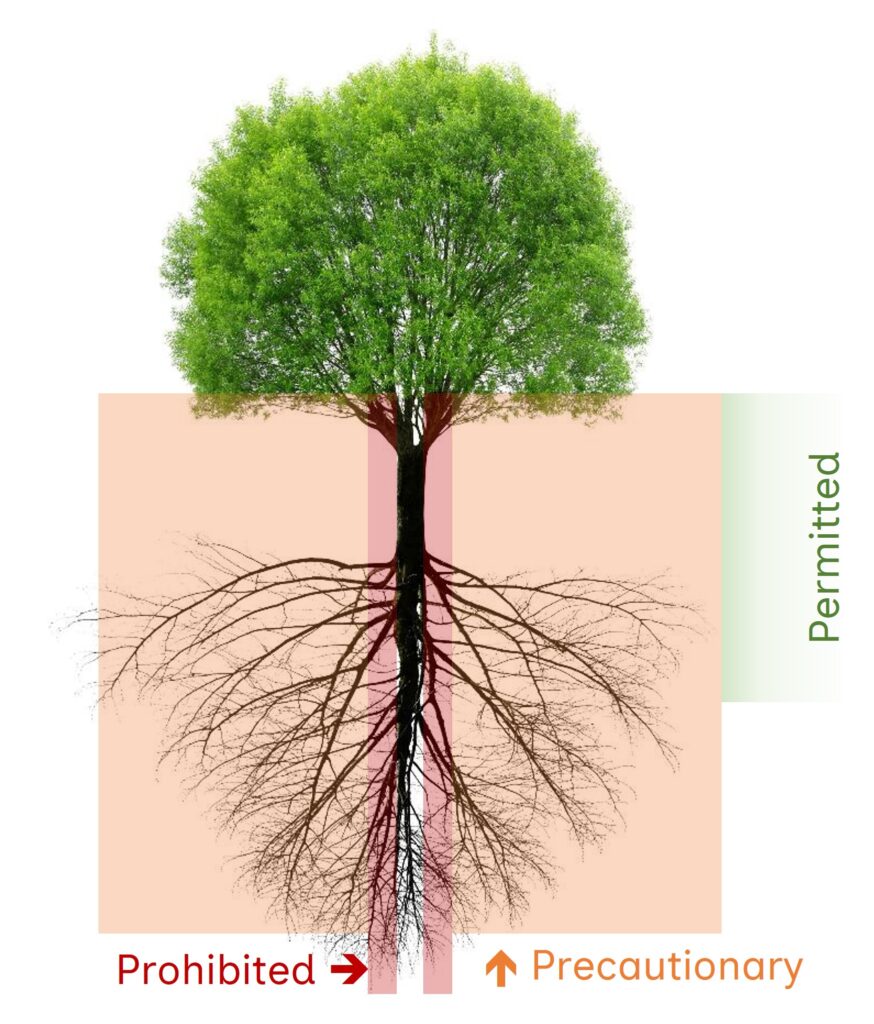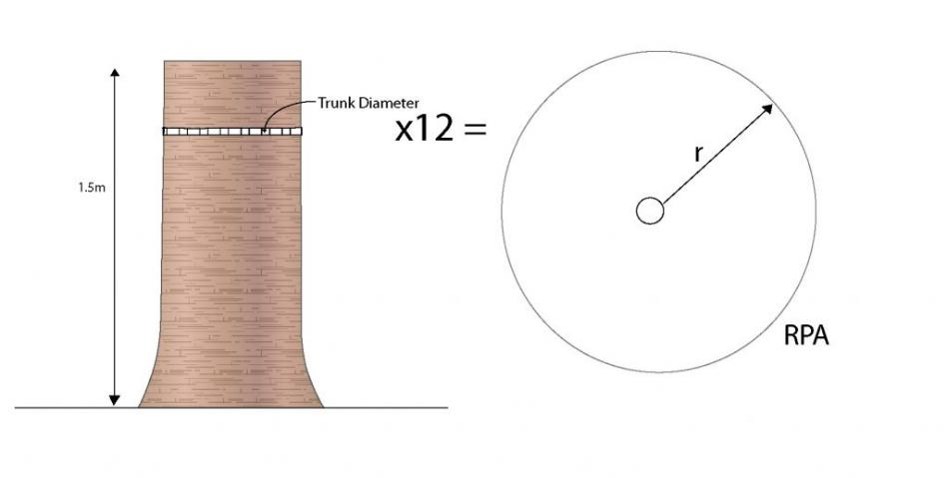In Central London the majority of trees are protected because they are:
- In a Conservation Area, and above a certain size, or
- Within an area wide tree preservation order, or
- Individually covered by a tree preservation order
The roots of such trees are protected under BS 5837, with the Root Protection Area’s (RPA’s) radius being measured as:
- For single stemmed trees: 12 times the tree’s diameter measured at chest height (1.5m from ground)
- For multi-stemmed trees: 10 times the tree’s basal diameter measured above the root flare
Under this approach, a single stem tree with a 1m diameter will have a RPA extending upto 12m away from the tree.
Some local authorities will even extend the root protection area in certain directions if the tree canopy extends beyond the calculated RPA, and/or to compensate for root constraint factors (e.g. a road or solid wall) on one or more sides of a tree.
BS 5837 supports Impact Moling
within Root Protection Areas

Whilst BS5837 encourages running services outside of Root Protection Areas (RPAs), it recognises this is not always possible.
BS5837 states that where services must be run within the RPA, trenchless insertion methods should be used, with Impact Moling listed as the recommended technique for Gas, Water and cable connections.
The National Joint Utilities Group (NJUG) provides a simplified interpretation of BS537 for it’s members. The NJUG approach splits the Root Protection Area into 2 zones. The Prohibited Zone extends as a 1m radius around the tree where no services should be run. The Precautionary Zone makes up the remainder of the Root Protection Area, where the NJUG instructs members not to use excavation machinery (including Trenching Machines) in the area.
Disclaimer: The information on this page is a summary of BS 5837:2012 and the NJUG Guidelines for the Planning, Installation and Maintenance of Utility Apparatus in Proximity to Trees. This page is not intended to be used as reference material (e.g. for Planning Applications, etc).


